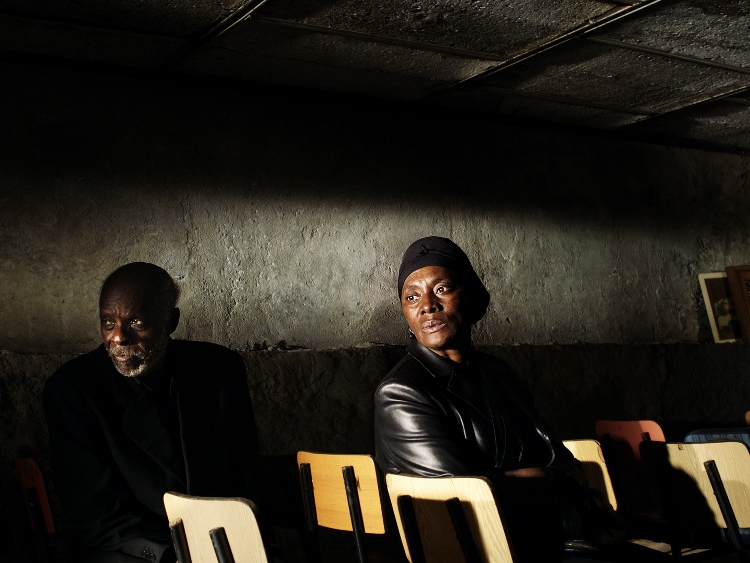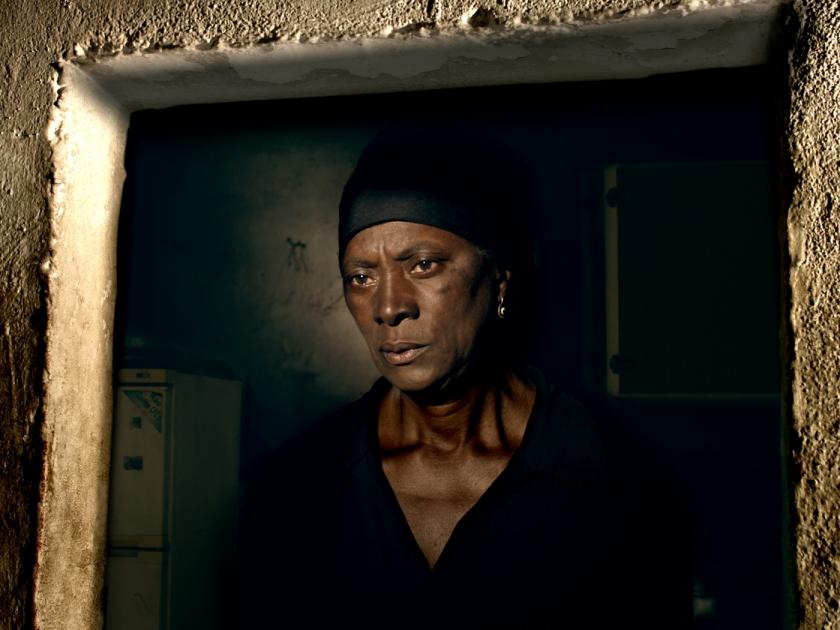Much of Vitalina Varela takes place in near darkness, the lack of movement in several scenes enough to make you think you’re watching a succession of still images. Pedro Costa’s protagonists may wrestle with a multitude of intractable issues, but the warmth and humanity with which they’re portrayed is humbling. Costa’s starting point was a sequence in his previous film Horse Money, a monologue from a woman recently arrived in Lisbon from Cape Verde to attend the funeral of the husband she has not seen for several years.
 Here, the titular Vitalina Varela gets to tell her own story at greater length, arriving in the city’s Cova da Moura slums to find that she’s three days too late. Immigrant workers at the airport tell Vitalina that there’s nothing for her in Lisbon, and that her husband has not provided for her. Missing the service is just one in a series of crushing disappointments. We see the abysmal conditions in which Vitalina’s former partner Joaquim has been existing. Her monologues reveal that the pair were building a house together in Cape Verde, "a palace with 10 rooms", and it’s implied that she’s waited decades for the invitation to join him. Vitalina’s frustration and anger are all too believable; Joaquim is a man who can’t be trusted "alive or dead", his concrete hovel collapsing around Vitalina. Costa's long takes and static camera allow the greyness, the squalor to hit home.
Here, the titular Vitalina Varela gets to tell her own story at greater length, arriving in the city’s Cova da Moura slums to find that she’s three days too late. Immigrant workers at the airport tell Vitalina that there’s nothing for her in Lisbon, and that her husband has not provided for her. Missing the service is just one in a series of crushing disappointments. We see the abysmal conditions in which Vitalina’s former partner Joaquim has been existing. Her monologues reveal that the pair were building a house together in Cape Verde, "a palace with 10 rooms", and it’s implied that she’s waited decades for the invitation to join him. Vitalina’s frustration and anger are all too believable; Joaquim is a man who can’t be trusted "alive or dead", his concrete hovel collapsing around Vitalina. Costa's long takes and static camera allow the greyness, the squalor to hit home.
Costa secures brilliant performances from his non-professional cast. Vitalina’s resilience and dignity are overwhelming, exactly as you’d expect from someone reliving and retelling her own life story. Costa fills the narrative with long sequences where we see nothing apart from her stoic, unflinching gaze. It’s impossible to look away. The local priest who buried Joaquim is played by Ventura, a Costa regular (pictured below, with Varela), his physical frailty embodying the guilt he feels over a shameful incident earlier in his career. Sun-drenched flashbacks (or visions?) give us a hint of how Vitalina’s life might have turned out. Despite the claustrophobic settings, Vitalina Varela always looks extraordinary, cinematographer Leonardo Simões’s lighting making the interiors resemble Renaissance paintings.
Daniel Kasman’s booklet essay includes an extended interview with Costa. Disc extras on this Second Run release include a conversation between the director and critic Maria Delgado, recorded at the ICA in March of this year, and a short but useful introduction to the film from Chris Fujiwara.















Add comment